
Professor Ananya Jahanara Kabir FBA
Professor of English Literature
Research interests
- Literature
Contact details
Biography
Ananya Jahanara Kabir FBA is Professor of English Literature at King’s College London. Trained at the Universities of Calcutta, Oxford, and Cambridge, she taught at the University of Leeds before joining King’s in 2013. Her doctoral work was on the European Middle Ages. She uses that training to explore diverse areas where cross-cultural encounters, memory work, and multilingualism converge: the Kashmir conflict, the Partition of India, the Black Atlantic, and the Indian Ocean world.
Professor Kabir theorises the relationship between creolisation, archipelagicity, and ’alegropolitics’— a term she coined during her ERC Advanced Grant-funded project ‘Modern Moves’ (2013-2018), that explored the global popularity of African-heritage partner dances such as salsa, kizomba, bachata, and tango. From dance her interests now encompass textile, foodways, and built heritage as indices of creolisation. A passionate advocate of embodied and innovative methodologies for Arts and Humanities Research, she is a keen linguist: apart from English, Bengali and Hindi (languages she grew up with), she works with French, German, Spanish, Portuguese, Dutch, and various Creoles. She is learning Bahasa Indonesia and Japanese.
Professor Kabir is Fellow of the British Academy, and recipient of India’s Infosys Prize in the Humanities and Germany’s Humboldt Research Prize.
Her research has been funded by the AHRC, ESRC, ERC, EC, the British Academy, The Freie-Universtät Berlin, MG University, Kerala, KITLV Leiden, Wereldmuseum Amsterdam, The Bellagio Foundation, and Fondazione Centro di Incontri Umani.
Research interests and PhD supervision
Professor Kabir’s current research involves:
- Creolisation across the Atlantic and Indian Ocean worlds
- Indian Ocean Studies; Afro-Asian solidarities; decolonial thought
- Archipelagic theory, memory studies, heritage studies
- Critical philology, medievalism, and empire
- Relationships between textuality and embodied cultural expression, especially dance and foodways
She has supervised successfully numerous PhDs who are now placed in institutions worldwide. She welcomes unconventional research plans that want to cross languages, genres, and periods, and theoretical orthodoxies. She is happy to help shape PhD projects that work with English alongside other languages, and has supervised theses using French, Spanish, Portuguese, (various) Creoles, Bengali, Assamese, and Siraiki sources. Projects must be interested above all in unpacking the pleasures, protocols, and politics of literary texts, alongside investigations into material and embodied culture.For more details, please see her full research profile.
For more details, please see her full research profile.
Teaching
Professor Kabir teaches modules at undergraduate and postgraduate levels that cross-cut historical periods and geographic spaces, and make students think harder about how literary production intersects with the big picture through the history and politics of colonialism, postcolonialism, slavery, and neoliberalism. Her modules are always research-led, which means that she updates her teaching to reflect shifts in her research agenda. In the past, therefore, she has offered modules on the Partition of India, writing from Pakistan, and the Kashmir conflict; more recently, her modules involve pirates, merchants, and sugar plantations. At both undergraduate and postgraduate levels, her teaching brings together literary and cultural histories of the Indian and Atlantic Oceans as spaces connected through modernity and (de)coloniality.
Expertise and public engagement
Professor Kabir engages with curatorial programming at high-profile cultural institutions across Europe, South, and Southeast Asia, including The Goethe-Institut’s ‘Echoes of the South Atlantic’ exhibition, and a new exhibition on textile and pattern at The Wereldmuseum, Amsterdam. Recent speaking engagements at public institutions include participation at the event ‘Serumpun 2025’ held at the Asian Civilisations Museum, Singapore, the Serendipity Festival 2024, Goa, and the Kochi-Muziris Biennale 2023, Kochi.
Her research on African-heritage dance led to several seminars and workshops at dance festivals worldwide and she collaborates with festival organisers to shape the research element of their productions.
She also enjoys longstanding collaborations with dancers, musicians and visual artists of Black, Creole, and Asian heritages, including musician and activist Dino D’Santiago, visual artist Naiza Khan, and dancer and choreographer Shailesh Bahoran.
She has appeared on radio and TV nationally and internationally to speak on a range of subjects within her expertise, from the Kashmir conflict to the pleasures of texts about maroons and pirates; her outreach work on creolisation is regularly featured in Indian media. In recent years she has been working with cultural producers across South Asia to develop awareness of India’s histories of creolisation.
One of her most memorable aspects of public engagement has been acting as cultural consultant for Mattel, Inc., one of the world’s largest producers of children’s toys, on the series of their television programme Thomas and Friends set in India.
Selected publications
- “Creolizing Archipelagic Intimacies: Remembering India and Vietnam via Pondicherry,” Verge: Journal of Global Asias 11.1 (2005): 132-66
- “Archipelagic Memory and Indian Ocean Literary Studies: An Introduction”, co-edited with Luca Raimondi, special issue of Monsoon: Journal of the Indian Ocean Rim 2.1 (2024)
- “Crypt, Cornucopia and the Surface of Pattern: Vlisco’s Designs," Third Text 37.2 (2023): 193-206
- “The Creolising Turn and its Archipelagic Directions,” Postcolonial Literary Inquiry 10.1 (2023): 90-103
- “Rapsodia Ibero-Indiana: Transoceanic Creolization and the Mando of Goa,” Modern Asian Studies 55.5 (2020): 1581-1636
Research

Culture, society and identities
This research group analyses Brazilian culture and how class, regional, gender, racial and ethnic identities are expressed
News
Culinary traditions of the Indian Ocean reveal complex cultural history, says academic
Foods like bubble tea can help us trace the constant blending of cultures across and beyond Southeast Asia, according to Professor Ananya Jahanara Kabir FBA,...

Gurnah receives International Bing Xin Literature Award at King's
Professor Abdulrazak Gurnah FRSL received the International Bing Xin Literature Award, presented by Professor Ananya Jahanara Kabir FBA from the Department of...
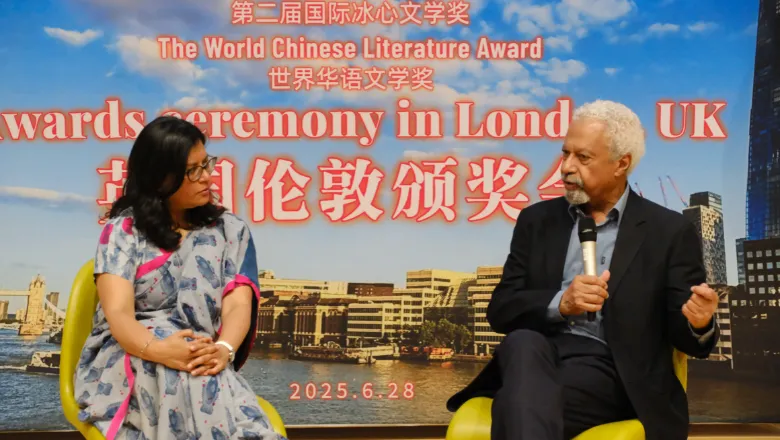
Climate change causing shift in geopolitics – Amitav Ghosh
Author Amitav Ghosh, presenting the Global Cultures Institute annual lecture at King’s, explored how climate change is upending traditional global power...

Amitav Ghosh to deliver Global Cultures Institute annual lecture
Author Amitav Ghosh will be presenting the Global Cultures Institute lecture on 28 November on the theme of ‘Writing and imagining history: narrating the...
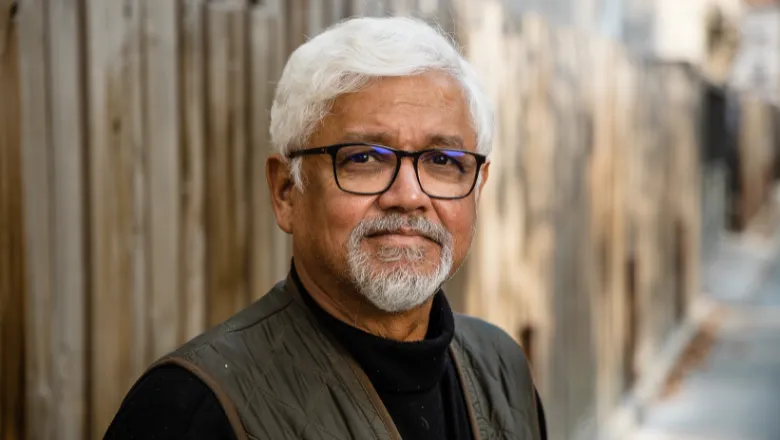
Tan Twan Eng highlights the value of Malaysian literature
The Global Cultures Institute hosted novelist Tan Twan Eng in conversation with Professor Ananya Jahanara Kabir, FBA, Professor of English Literature, on 27...
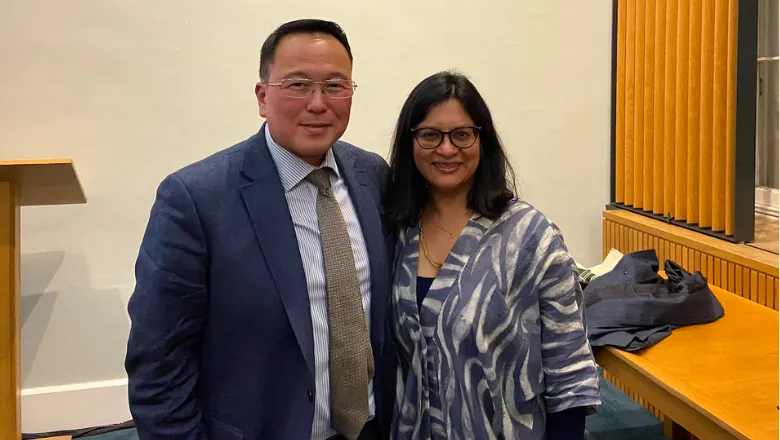
Arts & Humanities 2023 Institute Fellows announced
The inaugural Institute Fellows have been selected to pursue cross-disciplinary work within the new Digital Futures Institute or Global Cultures Institute.
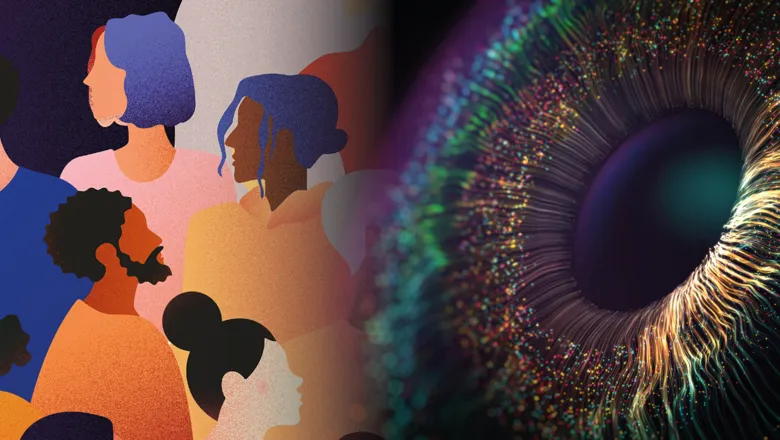
King's researchers elected new Fellows of The British Academy
The British Academy has elected five new Fellows from King’s College London.
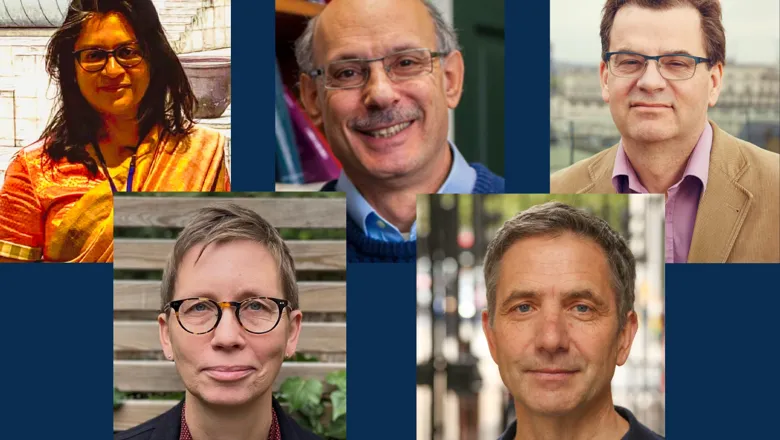
Professor Ananya Jahanara Kabir wins Humboldt Research Award
This prestigious award is conferred in recognition of the winner's entire academic record to date.
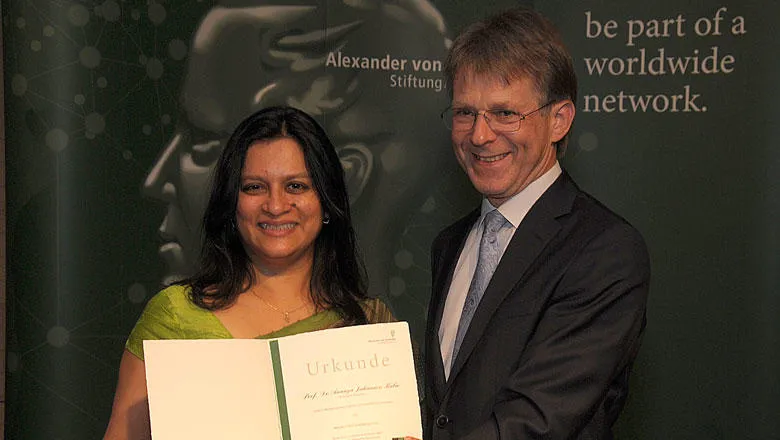
Professor Ananya Kabir awarded 2017 Infosys Prize for Humanities
Professor Ananya Jahanara Kabir has received the prestigious 2017 Infosys Prize for Humanities

Events
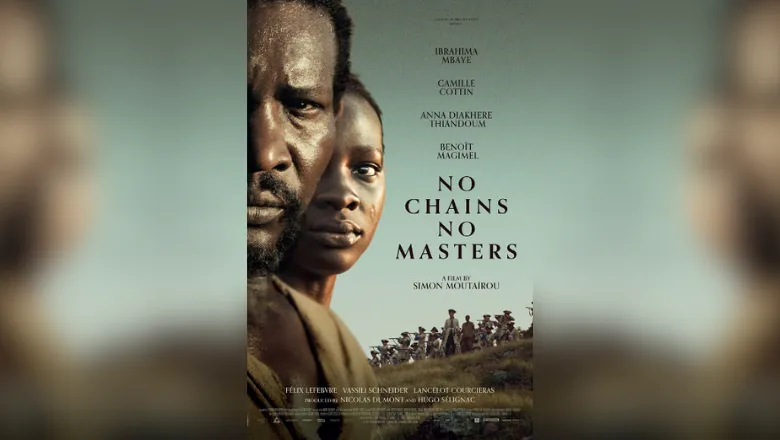
London Film Premiere ‘No Chains No Masters’ with film director Simon Moutaïrou
Join us for the London Film Premiere of No Chains No Masters (Ni Chaînes ni maîtres), followed by a discussion led by Professor Ananya Kabir with film...
Please note: this event has passed.
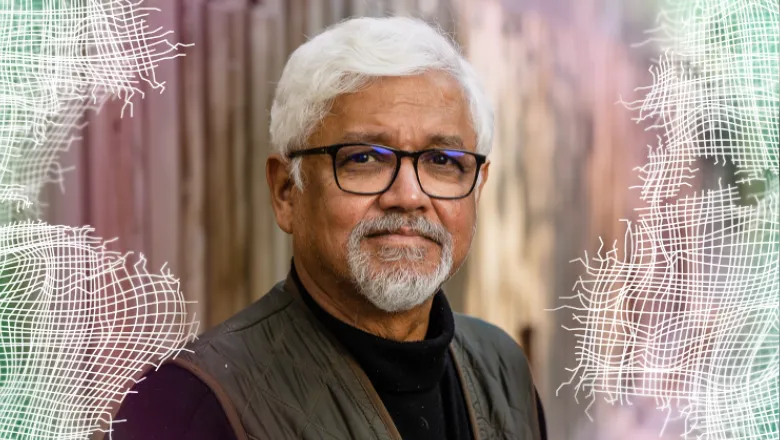
Writing and imagining history: narrating the Indian Ocean world
The Global Cultures Institute and the Marie Skłodowska-Curie project IATIO welcome the world-renowned author Amitav Ghosh to present the Institute's 2024-25...
Please note: this event has passed.
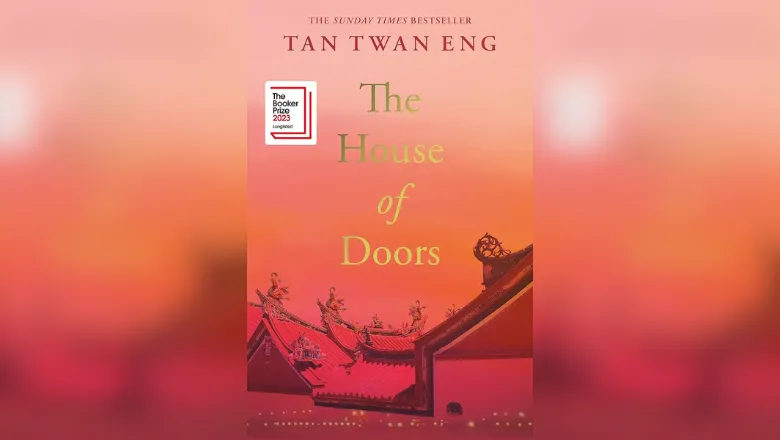
An Evening with Tan Twan Eng, Novelist of Historical Penang
Malaysian author Tan Twan Eng joins Professor Ananya Kabir, FBA, to discuss his historical novels that meditate on beauty, creativity, and human relations in...
Please note: this event has passed.

Book Launch - The Poet’s Song: 'Folk' and its Cultural Politics in South Asia
Dr Priyanka Basu launches her new book on the South Asian verse-duelling genre of Kobigaan.
Please note: this event has passed.
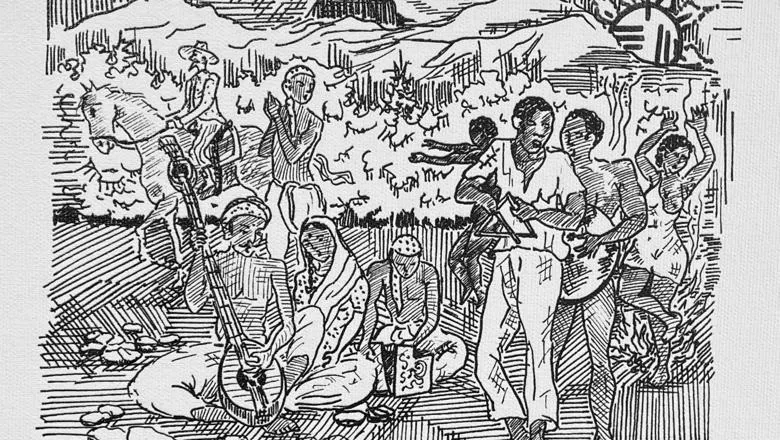
Researching Indian Ocean Literary Archipelagos: Theory, Methodology and Practice
This talk presents research on literary and cultural practices in archipelagic spaces of the Western Indian Ocean.
Please note: this event has passed.

Creolisation in a global frame: Connecting the Atlantic and Indian Ocean Worlds
A panel discussion with Professors Manuela Boatcă, (University of Freiburg), Hugo Cardoso (University of Lisbon) and Ananya Kabir (King’s College London).
Please note: this event has passed.

Island Registers: Languages of Transactions in Lakshadweep
A part of the seminar on the theme of ‘Archipelagic Indias’.
Please note: this event has passed.

Silence and Water: Andaman Islands in recent Indian novels
A part of the seminar on the theme of ‘Archipelagic Indias’.
Please note: this event has passed.

On the edge: island, indigeneity and geo-ontologies in Lakshadweep media imaginaries
This event will explore the Archipelagic Indias in the frame of the IATIO project
Please note: this event has passed.

Fiction and forgotten histories of the Andaman Islands
This event will explore the fiction and forgotten histories of the Andaman Islands
Please note: this event has passed.
Features
How the unremembered legacy of the French Empire connects India and Vietnam
Professor Ananya Jahanara Kabir FBA, Professor of English Literature and former Fellow of the Global Cultures Institute, explores how gaps in remembering the...

The Angolan dancers who helped South African anthem Jerusalema go global
In February the Angolan dance troupe Fenómenos do Semba created the viral #JerusalemaDanceChallenge video that showed off their dance moves to the South...

Research

Culture, society and identities
This research group analyses Brazilian culture and how class, regional, gender, racial and ethnic identities are expressed
News
Culinary traditions of the Indian Ocean reveal complex cultural history, says academic
Foods like bubble tea can help us trace the constant blending of cultures across and beyond Southeast Asia, according to Professor Ananya Jahanara Kabir FBA,...

Gurnah receives International Bing Xin Literature Award at King's
Professor Abdulrazak Gurnah FRSL received the International Bing Xin Literature Award, presented by Professor Ananya Jahanara Kabir FBA from the Department of...

Climate change causing shift in geopolitics – Amitav Ghosh
Author Amitav Ghosh, presenting the Global Cultures Institute annual lecture at King’s, explored how climate change is upending traditional global power...

Amitav Ghosh to deliver Global Cultures Institute annual lecture
Author Amitav Ghosh will be presenting the Global Cultures Institute lecture on 28 November on the theme of ‘Writing and imagining history: narrating the...

Tan Twan Eng highlights the value of Malaysian literature
The Global Cultures Institute hosted novelist Tan Twan Eng in conversation with Professor Ananya Jahanara Kabir, FBA, Professor of English Literature, on 27...

Arts & Humanities 2023 Institute Fellows announced
The inaugural Institute Fellows have been selected to pursue cross-disciplinary work within the new Digital Futures Institute or Global Cultures Institute.

King's researchers elected new Fellows of The British Academy
The British Academy has elected five new Fellows from King’s College London.

Professor Ananya Jahanara Kabir wins Humboldt Research Award
This prestigious award is conferred in recognition of the winner's entire academic record to date.

Professor Ananya Kabir awarded 2017 Infosys Prize for Humanities
Professor Ananya Jahanara Kabir has received the prestigious 2017 Infosys Prize for Humanities

Events

London Film Premiere ‘No Chains No Masters’ with film director Simon Moutaïrou
Join us for the London Film Premiere of No Chains No Masters (Ni Chaînes ni maîtres), followed by a discussion led by Professor Ananya Kabir with film...
Please note: this event has passed.

Writing and imagining history: narrating the Indian Ocean world
The Global Cultures Institute and the Marie Skłodowska-Curie project IATIO welcome the world-renowned author Amitav Ghosh to present the Institute's 2024-25...
Please note: this event has passed.

An Evening with Tan Twan Eng, Novelist of Historical Penang
Malaysian author Tan Twan Eng joins Professor Ananya Kabir, FBA, to discuss his historical novels that meditate on beauty, creativity, and human relations in...
Please note: this event has passed.

Book Launch - The Poet’s Song: 'Folk' and its Cultural Politics in South Asia
Dr Priyanka Basu launches her new book on the South Asian verse-duelling genre of Kobigaan.
Please note: this event has passed.

Researching Indian Ocean Literary Archipelagos: Theory, Methodology and Practice
This talk presents research on literary and cultural practices in archipelagic spaces of the Western Indian Ocean.
Please note: this event has passed.

Creolisation in a global frame: Connecting the Atlantic and Indian Ocean Worlds
A panel discussion with Professors Manuela Boatcă, (University of Freiburg), Hugo Cardoso (University of Lisbon) and Ananya Kabir (King’s College London).
Please note: this event has passed.

Island Registers: Languages of Transactions in Lakshadweep
A part of the seminar on the theme of ‘Archipelagic Indias’.
Please note: this event has passed.

Silence and Water: Andaman Islands in recent Indian novels
A part of the seminar on the theme of ‘Archipelagic Indias’.
Please note: this event has passed.

On the edge: island, indigeneity and geo-ontologies in Lakshadweep media imaginaries
This event will explore the Archipelagic Indias in the frame of the IATIO project
Please note: this event has passed.

Fiction and forgotten histories of the Andaman Islands
This event will explore the fiction and forgotten histories of the Andaman Islands
Please note: this event has passed.
Features
How the unremembered legacy of the French Empire connects India and Vietnam
Professor Ananya Jahanara Kabir FBA, Professor of English Literature and former Fellow of the Global Cultures Institute, explores how gaps in remembering the...

The Angolan dancers who helped South African anthem Jerusalema go global
In February the Angolan dance troupe Fenómenos do Semba created the viral #JerusalemaDanceChallenge video that showed off their dance moves to the South...

